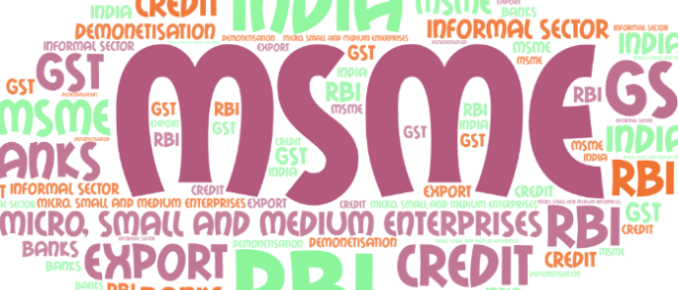The Industrial Policy Resolution of 1948 and the Industries (Development and Regulation) Act, 1951 were the initial factors that played a key role in the development of cottage and small scale industries (SSIs) in India.
In 2006, the government enacted the Micro, Small and Medium Enterprises Development Act and changed the concept of SSIs.
Since then, the government has established several legal and regulatory frameworks to influence the growth of MSMEs and abolish red tape that hindered their operations.
MSME loan, offered by both public and private financial institutions, formed part of the development process and proved critical.
What is MSME?
MSME stands for micro, small and medium enterprises. The Government of India defines MSMEs based on the following after doing away with the manufacturing business and service provider classification –
Investment threshold for MSME classification
The investment made by any manufacturing business or service provider should be –
- Micro – Less than Rs.1 crore.
- Small – Less than Rs.10 crore.
- Medium – Less than Rs.20 crore.
The turnover threshold for MSME classification
The turnover for these businesses should be –
- Micro – Less than Rs.5 crore.
- Small – Less than Rs.50 crore.
- Medium – Less than Rs.100 crore.
With this understanding of what is MSME, take a look at the loans and advances extended to MSMEs under various schemes and otherwise along with their growth story.
MSME loans – Types and impacts
An MSME loan can be availed from public/private lenders or local governing bodies under schemes offered by the government. These loans can be used as seed capital or to fund working capital requirements.
Some of the most popular MSME loans and their impacts are mentioned below –
1.MUDRA loan
MUDRA loans are regulated by the Micro Units Development and Refinance Agency Limited (MUDRA). This body was established under the Pradhan Mantri MUDRA Yojana (PMMY). It provides loans through NBFCs, MFIs, and other financial institutions.
A MUDRA loan can be of the following three types –
- Tarun – Between Rs.5 lakh and Rs.10 lakh.
- Kishor – Between Rs.50,000 and Rs.5 lakh.
- Shishu – Up to Rs.50,000.
As of 2019-20 –
- The number of MUDRA loans sanctioned – 6.2 crore.
- Total amount sanctioned – Rs.3.3 lakh crore.
- Total amount disbursed – Rs.3.2 lakh crore.
- SIDBI Make in India Soft Loan Fund for Micro Small and Medium Enterprises (SMILE)
The SIDBI Make in India Soft Loan Fund for Micro, Small and Medium Enterprises (SMILE) is an MSME loan offered by the Small Industries Development Bank of India (SIDBI).
The scheme is projected to help approximately 13,000 small businesses employing more than 2 lakh individuals. It is targeted towards 25 sectors under the Make in India campaign.
There are two types of loans provided via SMILE –
- Soft loan (Quasi – Equity) – Funds 10% of the project cost with a ceiling of Rs.20 lakh and 15% of the project cost with a ceiling of Rs.30 lakh for businesses run by women, SC/ST, persons with disability.
- Term loan with soft terms – Minimum Rs.25 lakh for existing enterprises and Rs.50 lakh for new ones.
- Term loan – 75% of the project cost with a ceiling of Rs.1 crore; 2/3rd of the remaining subject to the promoter’s contribution and debt-equity ratio.
The repayment period of SMILE loans can stretch up to 10 years along with a moratorium period of up to 3 years.
2.Stand-Up India
The Stand-Up India scheme is specifically targeted towards enterprises owned by women and SC/ST individuals. The scheme funds businesses where the beneficiaries hold a 51% controlling stake.
Till date –
- Total amount disbursed under the Stand-Up India scheme – Rs.8,200+ crore.
- Total loan applications approved under the scheme – 53,000+.
Under this scheme, beneficiaries can avail of business loans between Rs.10 lakh and Rs.1 crore to set up a greenfield business. They can avail such loans from more than 1.3 lakh branches of 100+ financial institutions.
3.Business loans from NBFCs
Traditional business loans from NBFCs have also been available for enterprises that seek quick and hassle-free financing.
There are several benefits of an MSME loan from these financial institutions. For instance, borrowers can avail up to Rs.30 lakh in less than 24 hours from specific lenders. The tenor for these can also go up to 60 months.
Additionally, NBFCs like Bajaj Finserv provide pre-approved offers that make the process of availing loans uncomplicated. These offers are available on business loans, personal loans, and a host of other financial products.
Back to the growth story of these loans, as of March 2019, the YoY credit growth of MSMEs was Rs.15.9 crore. SMEs registered a credit growth of 15.6% while micro-enterprises, 19.8%.
Such statistics posit a confirming picture that MSME loan has become a popular way of financing the business needs of the concerned enterprises.





